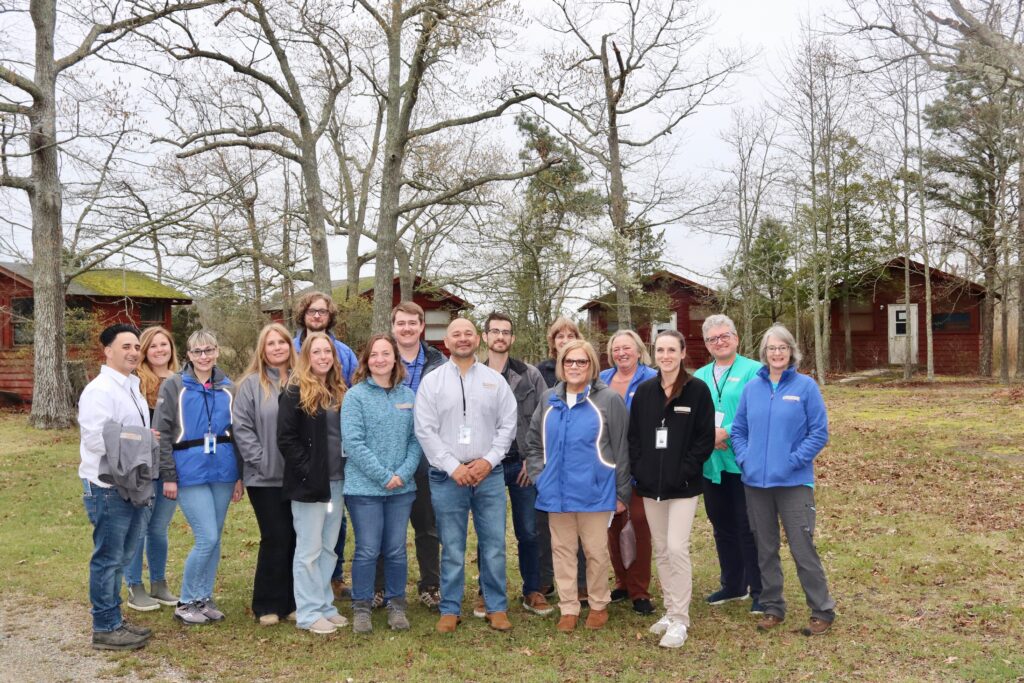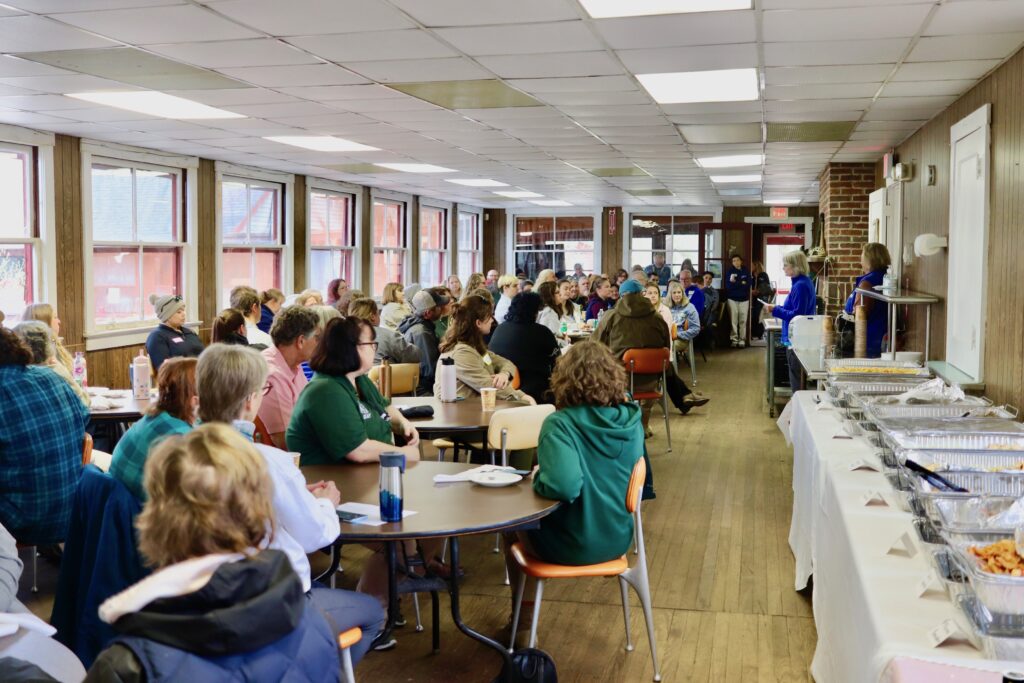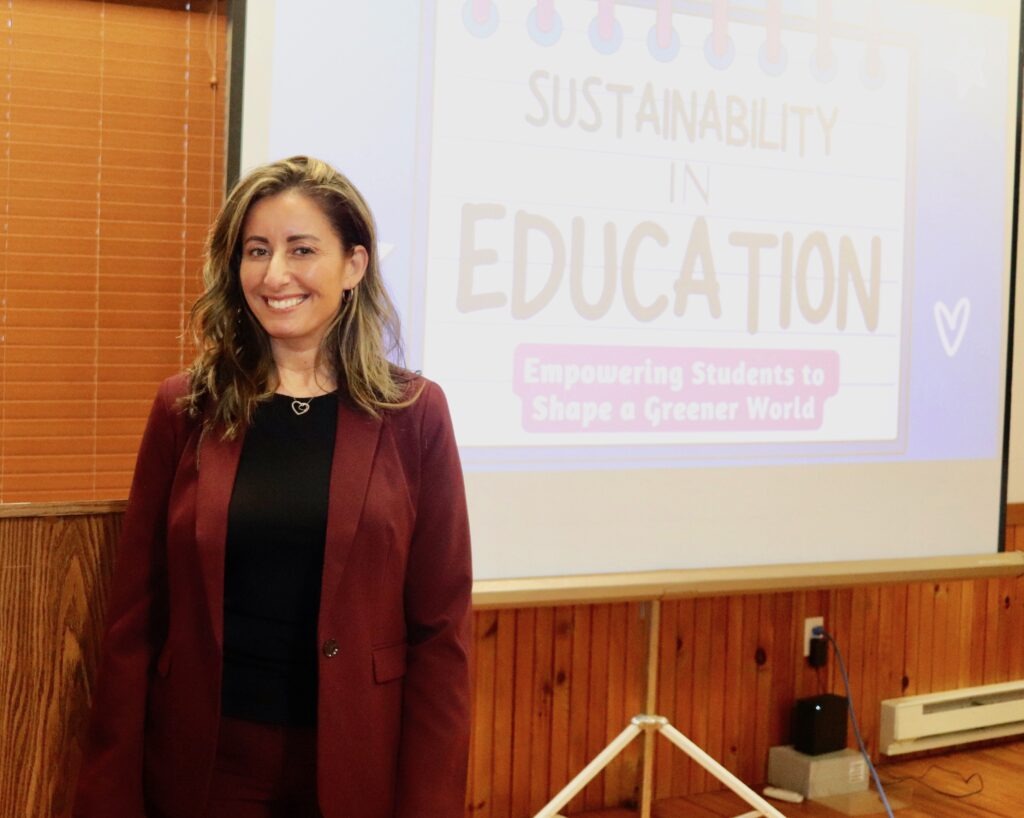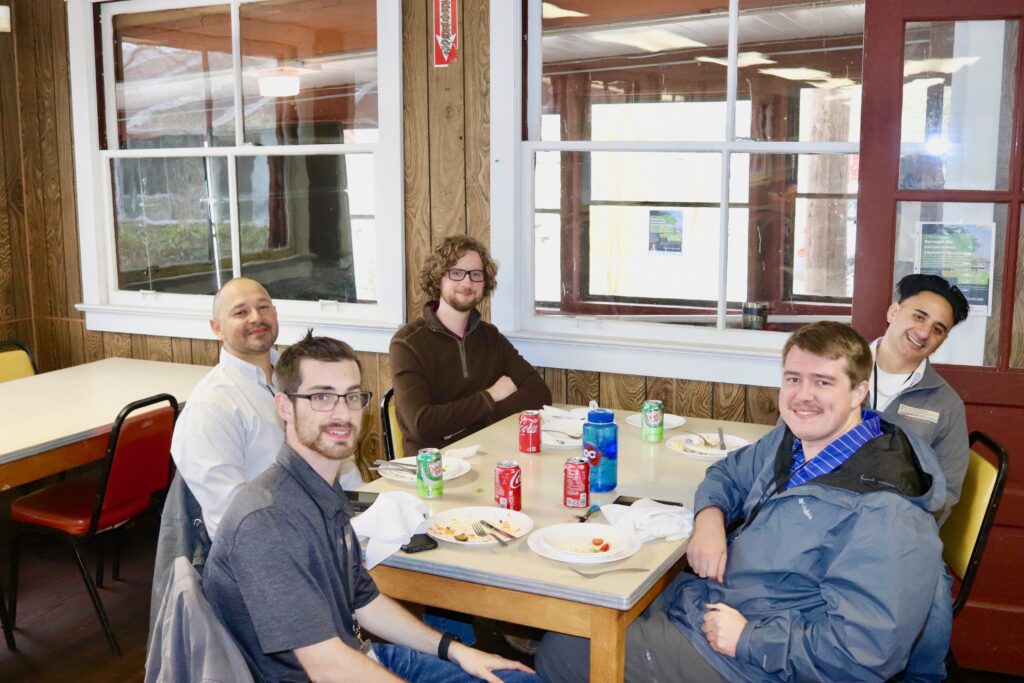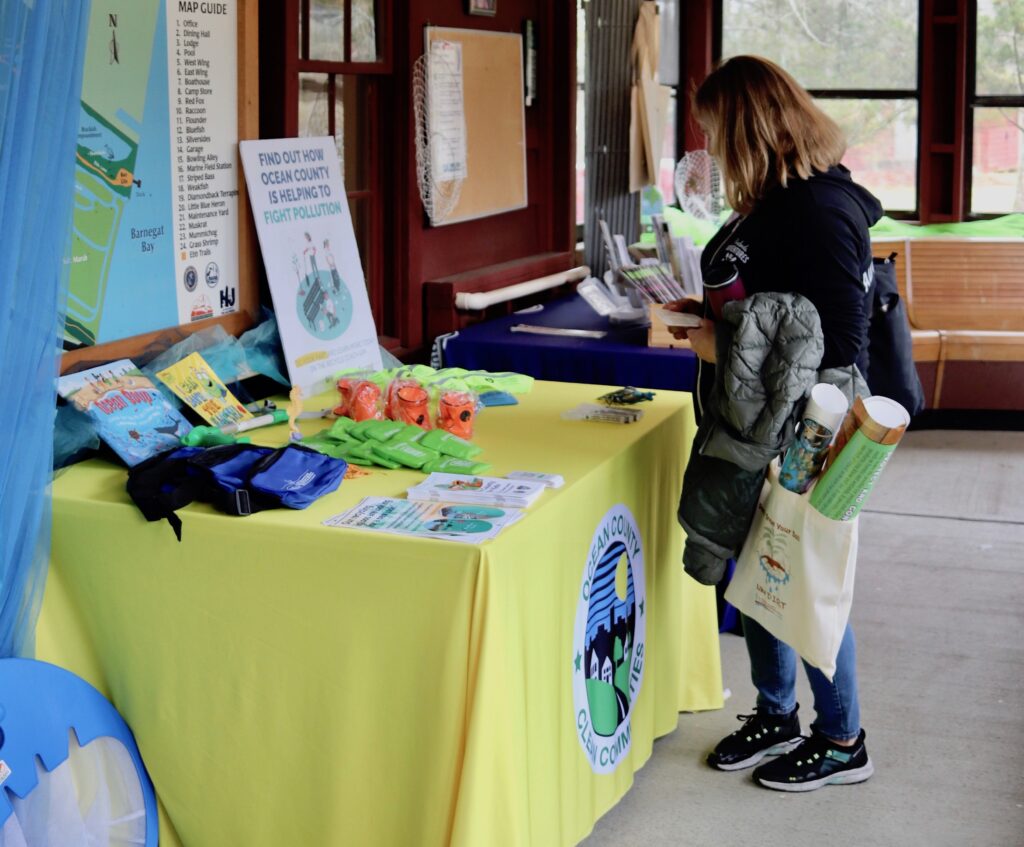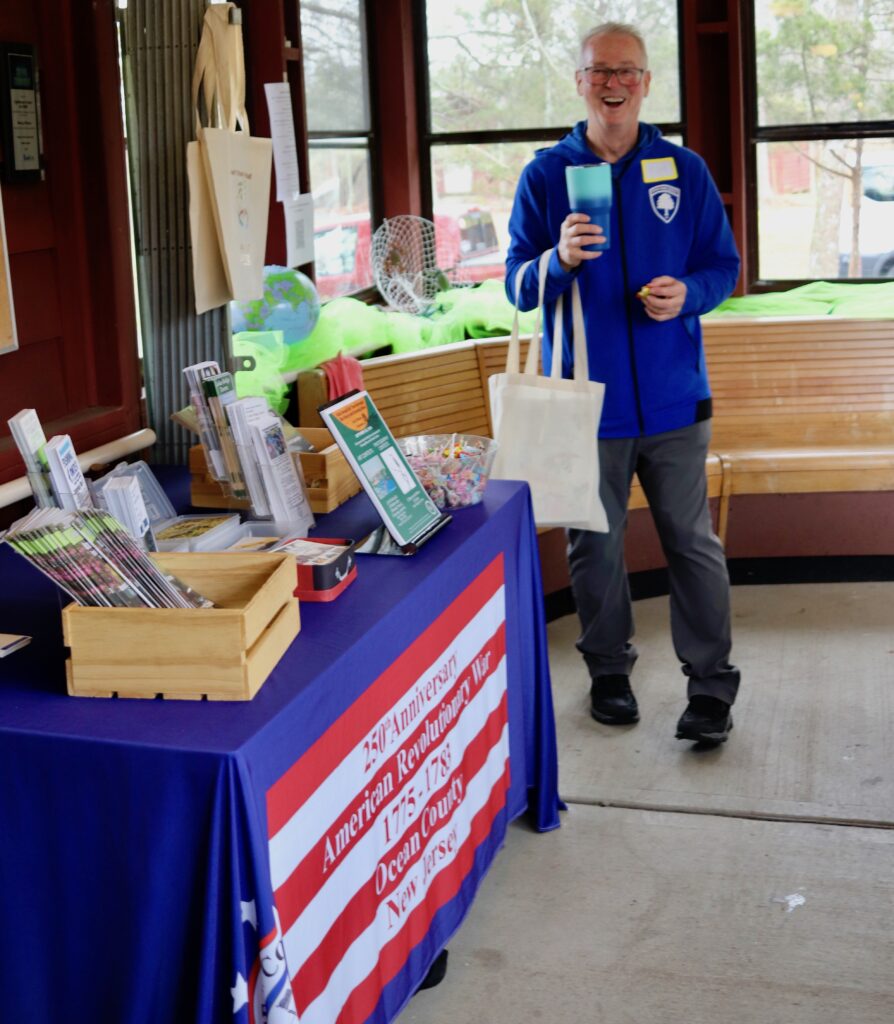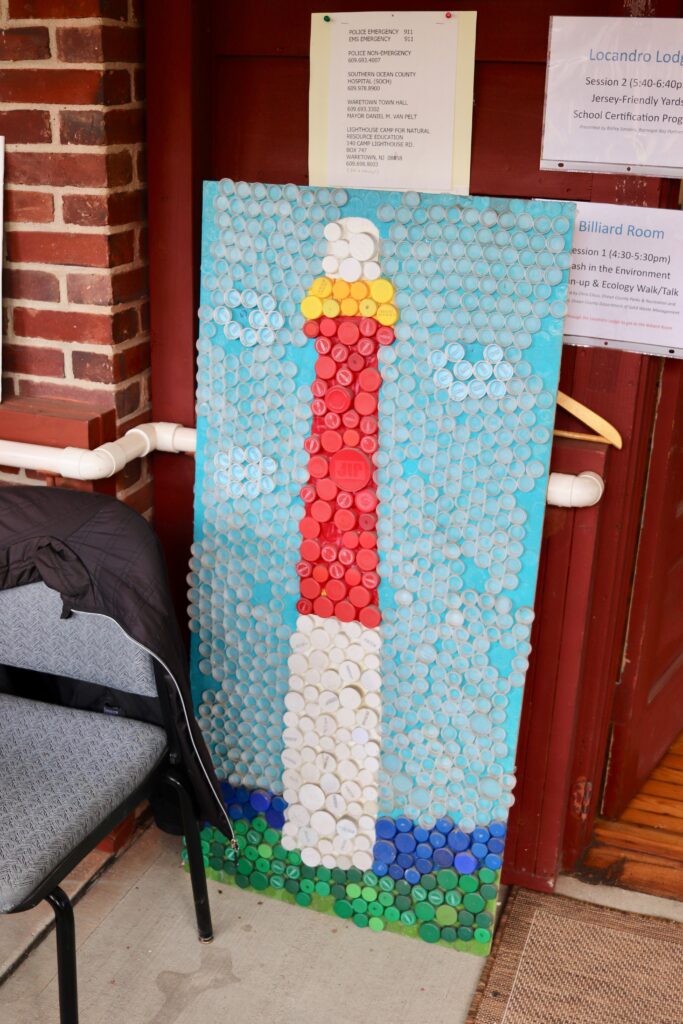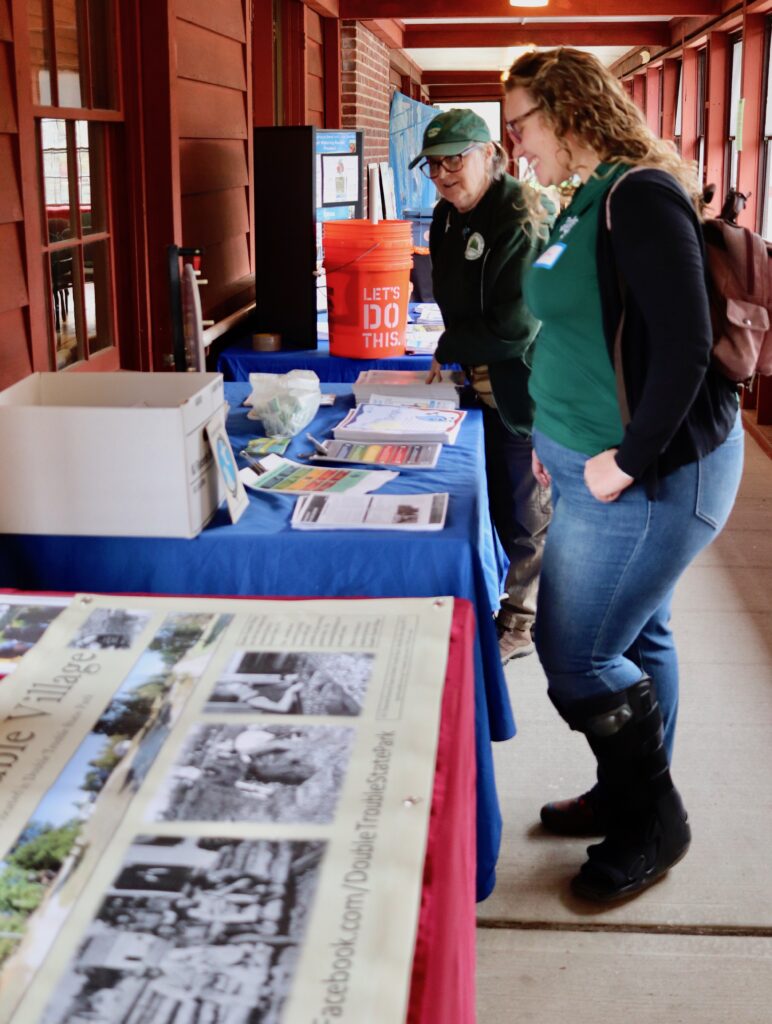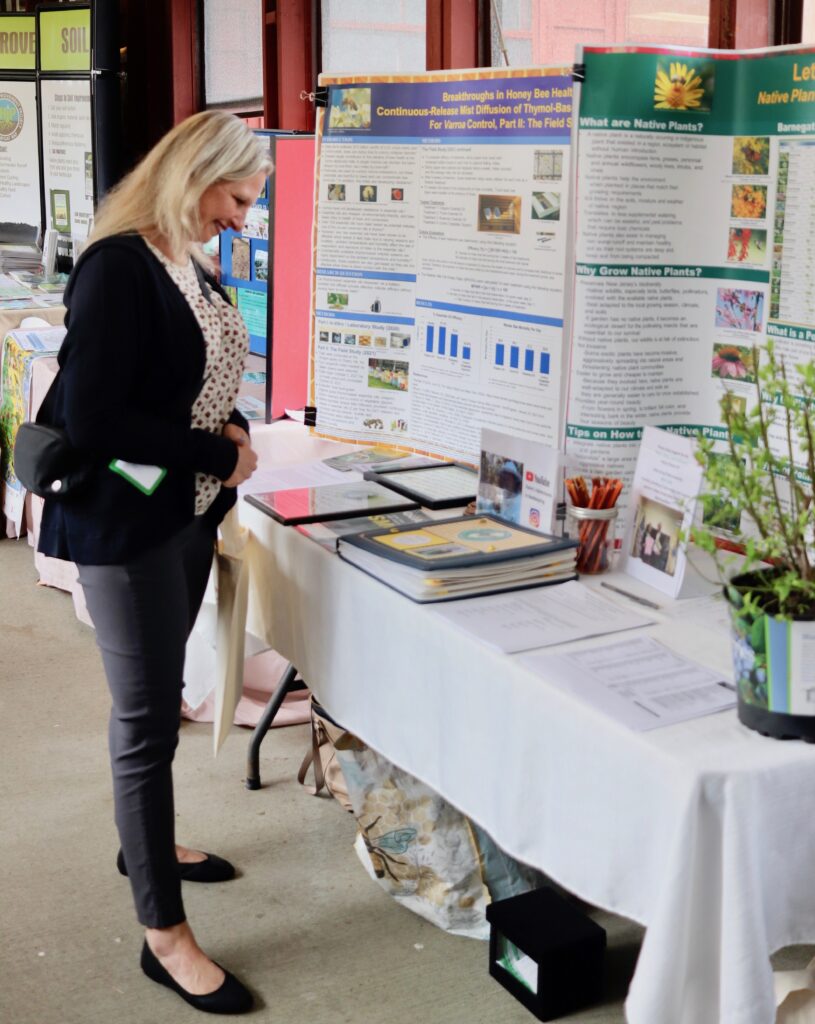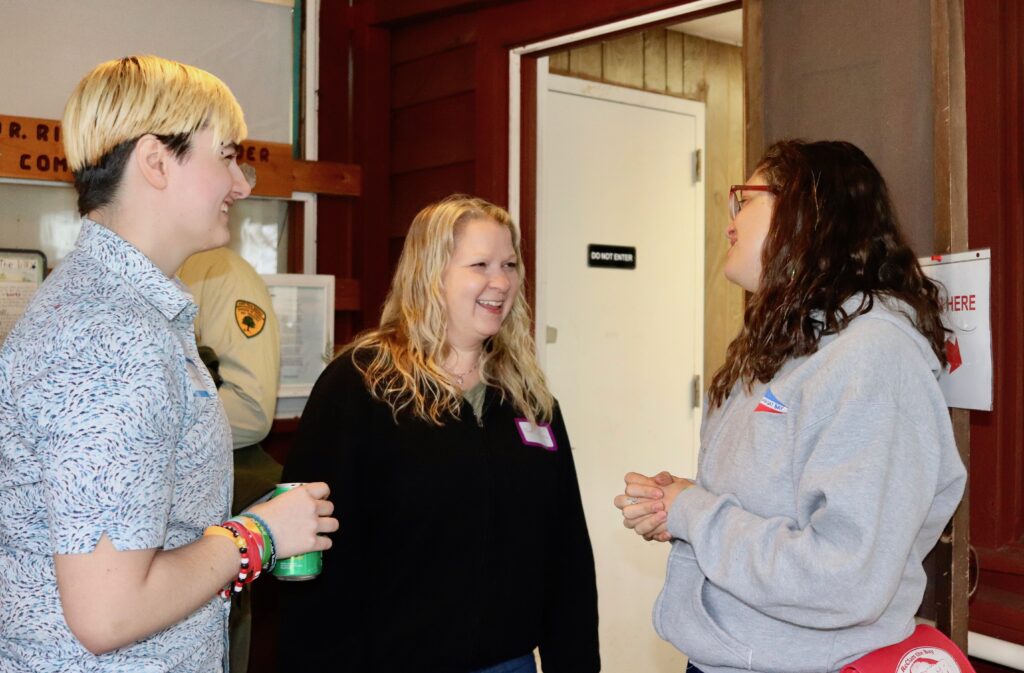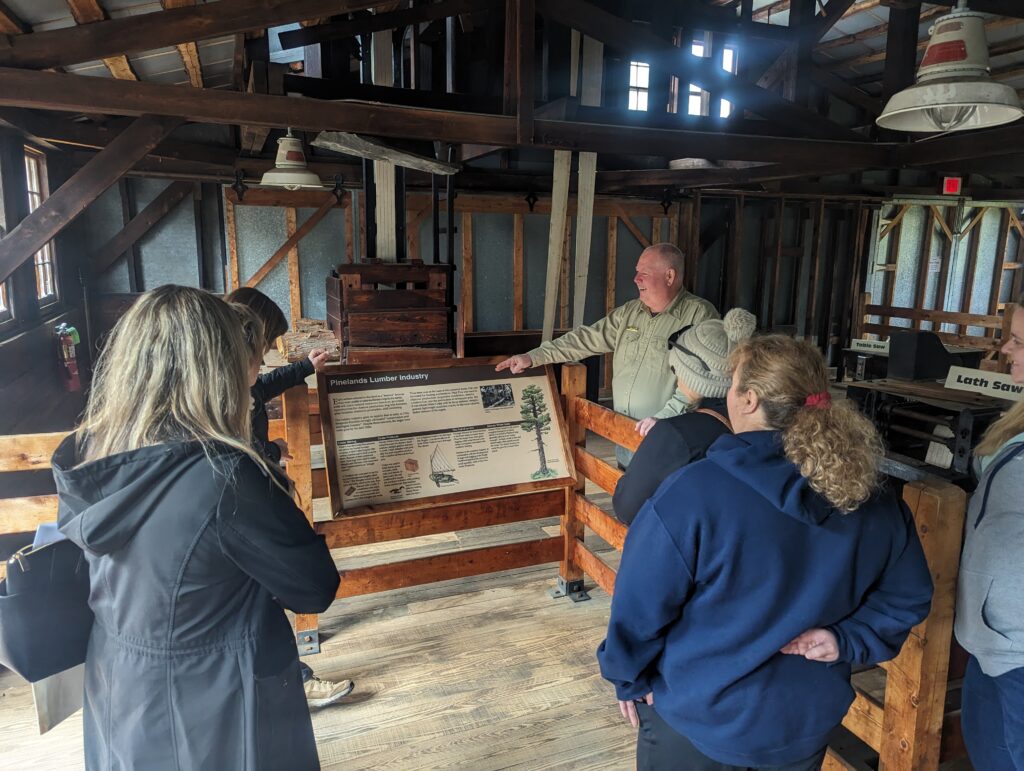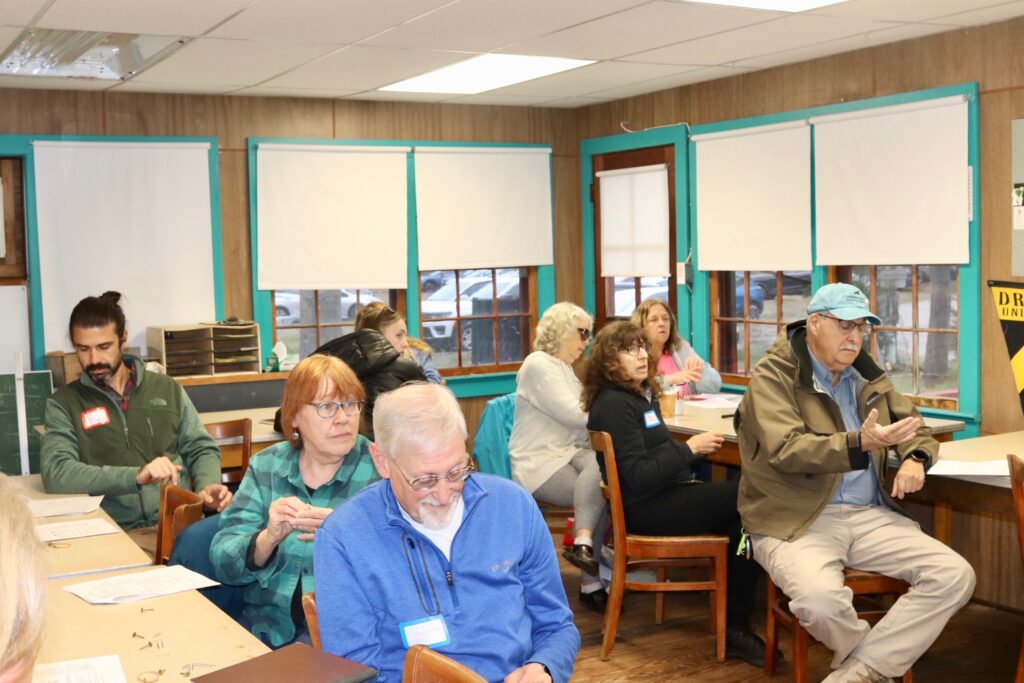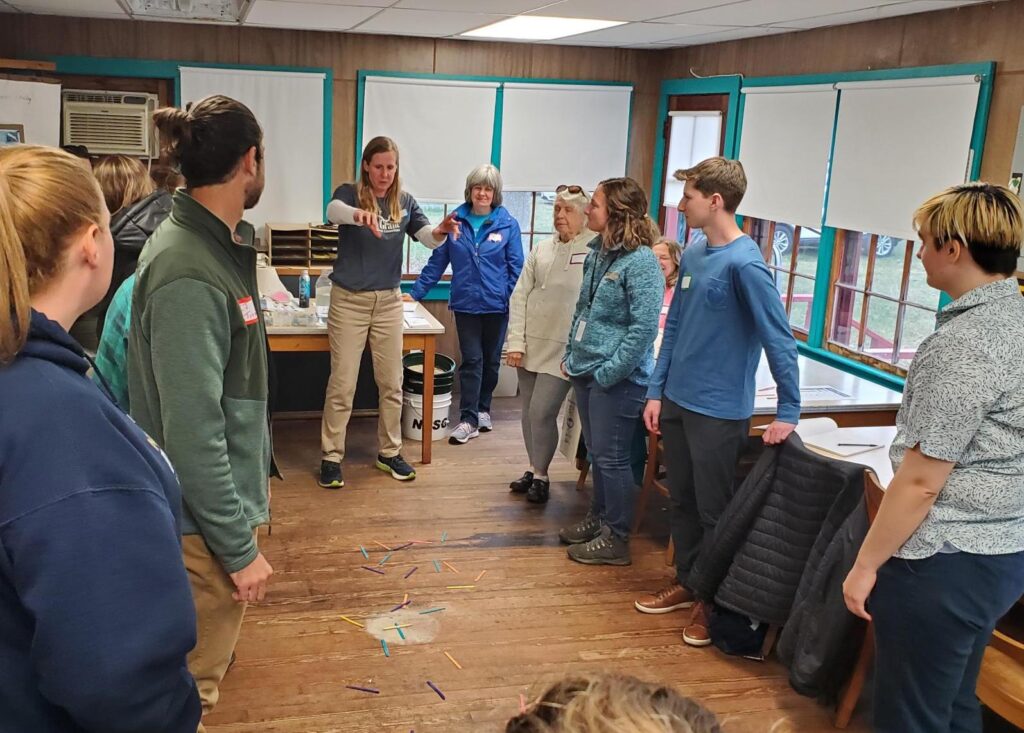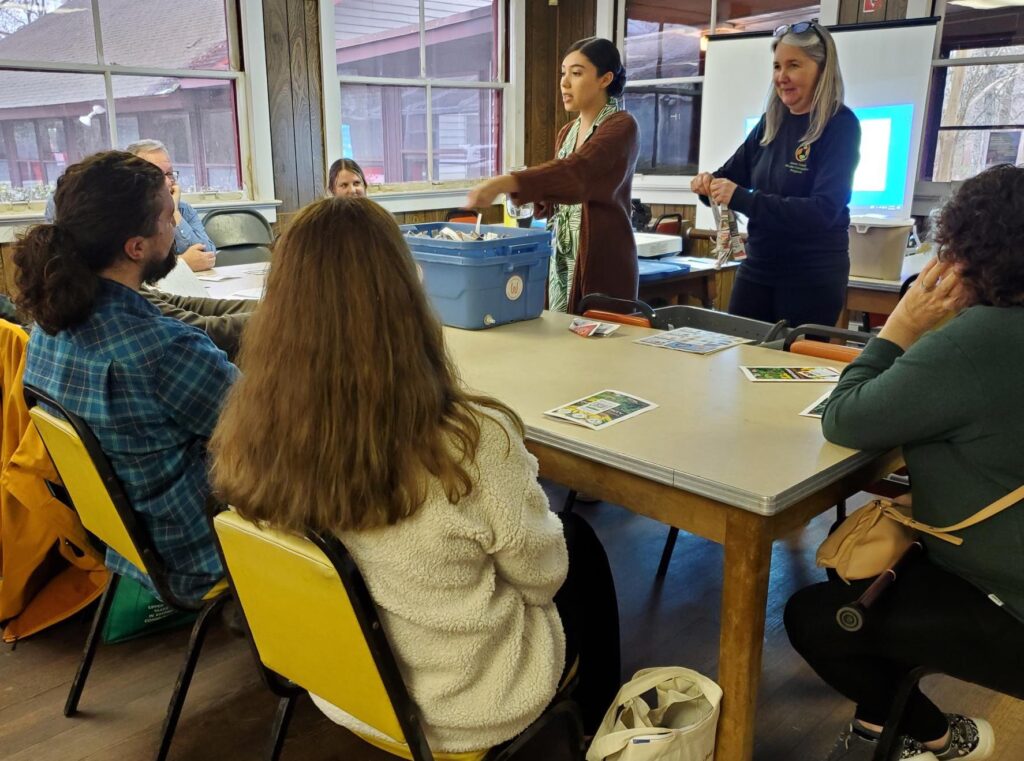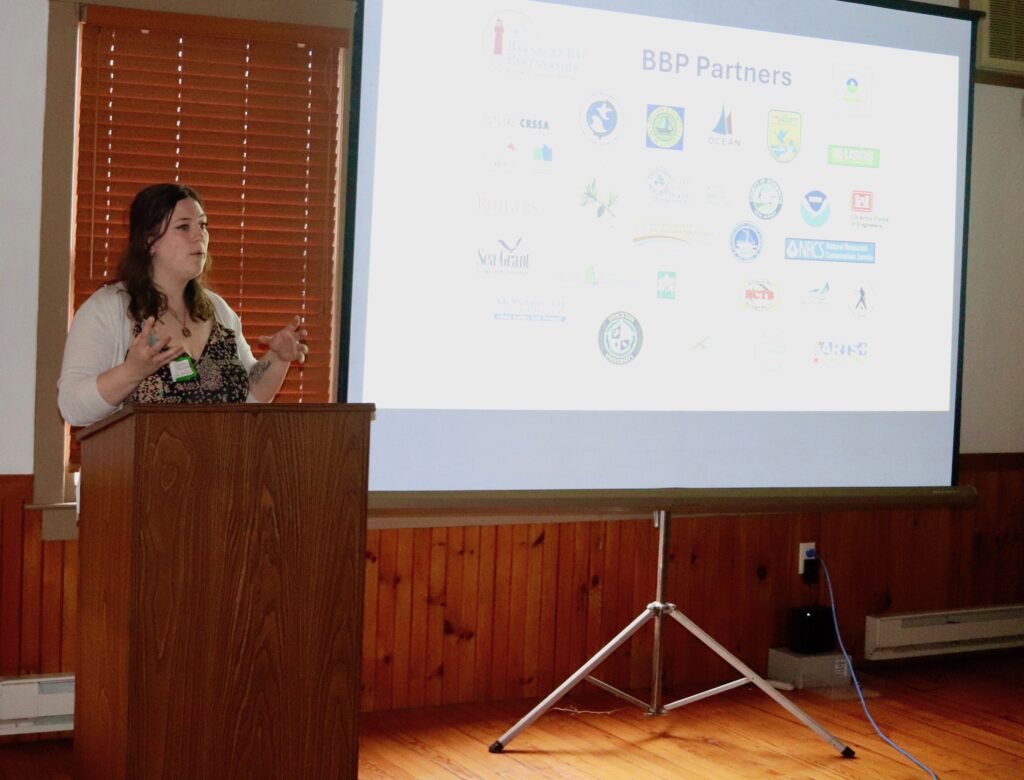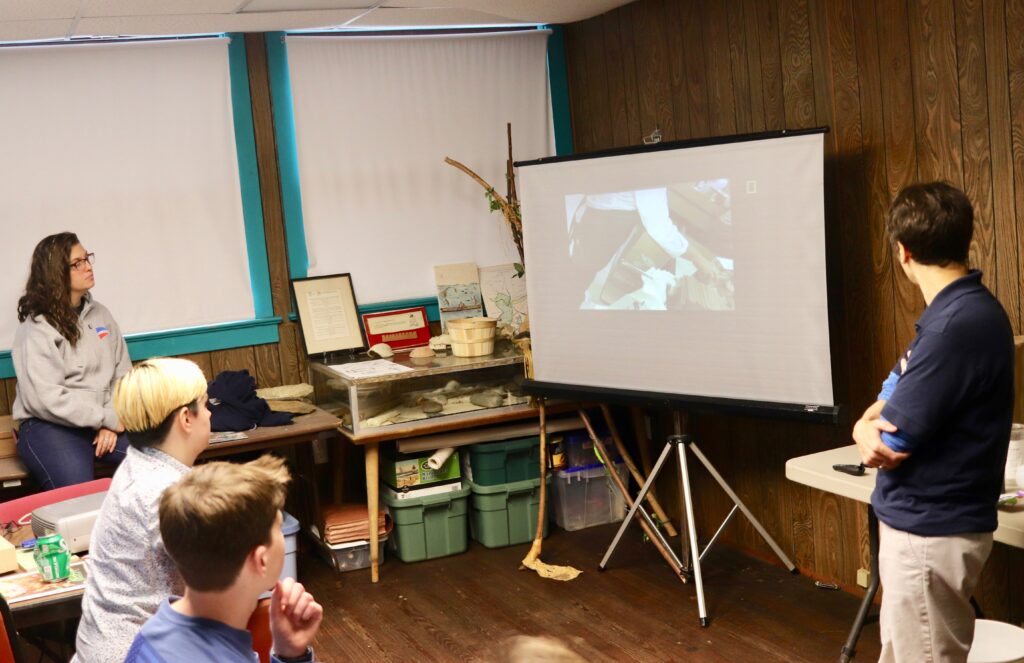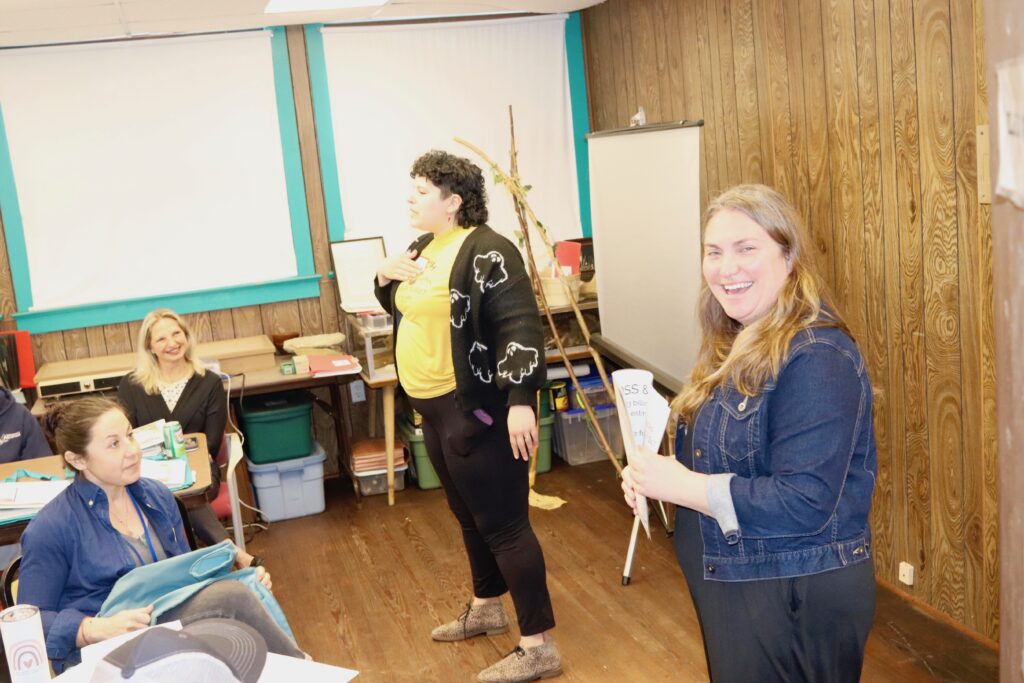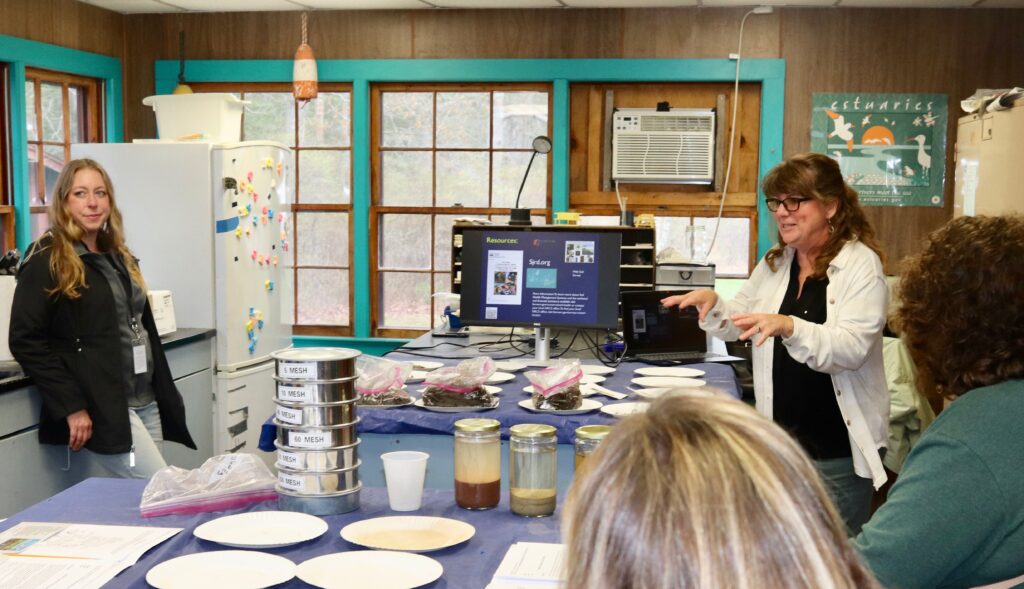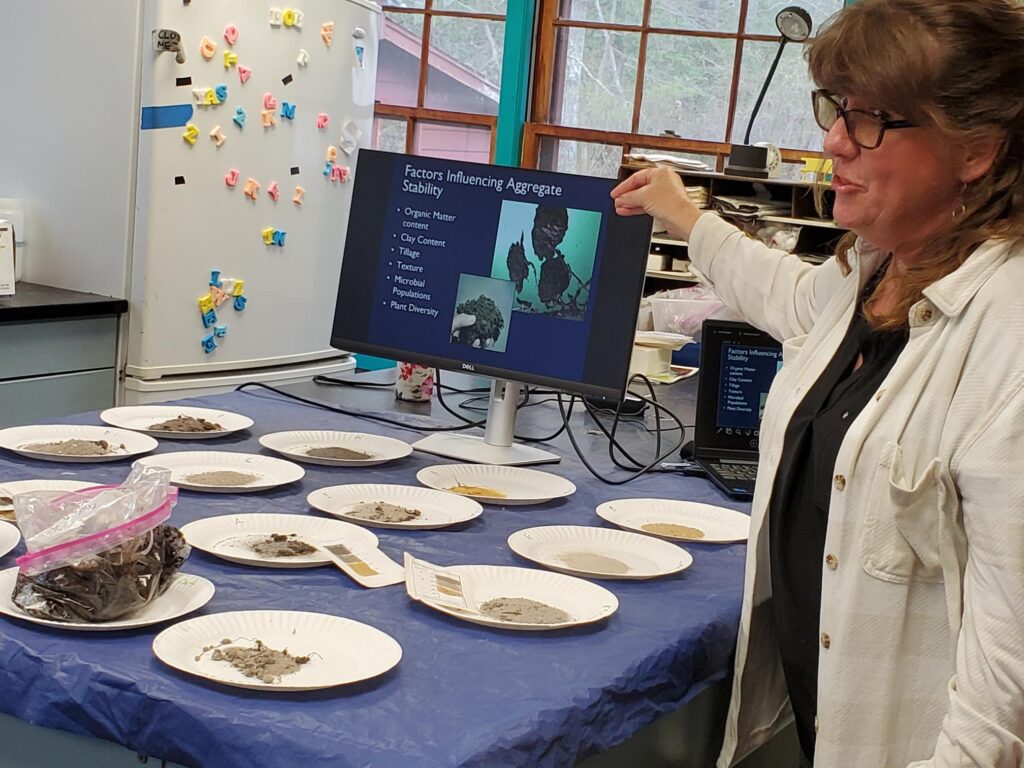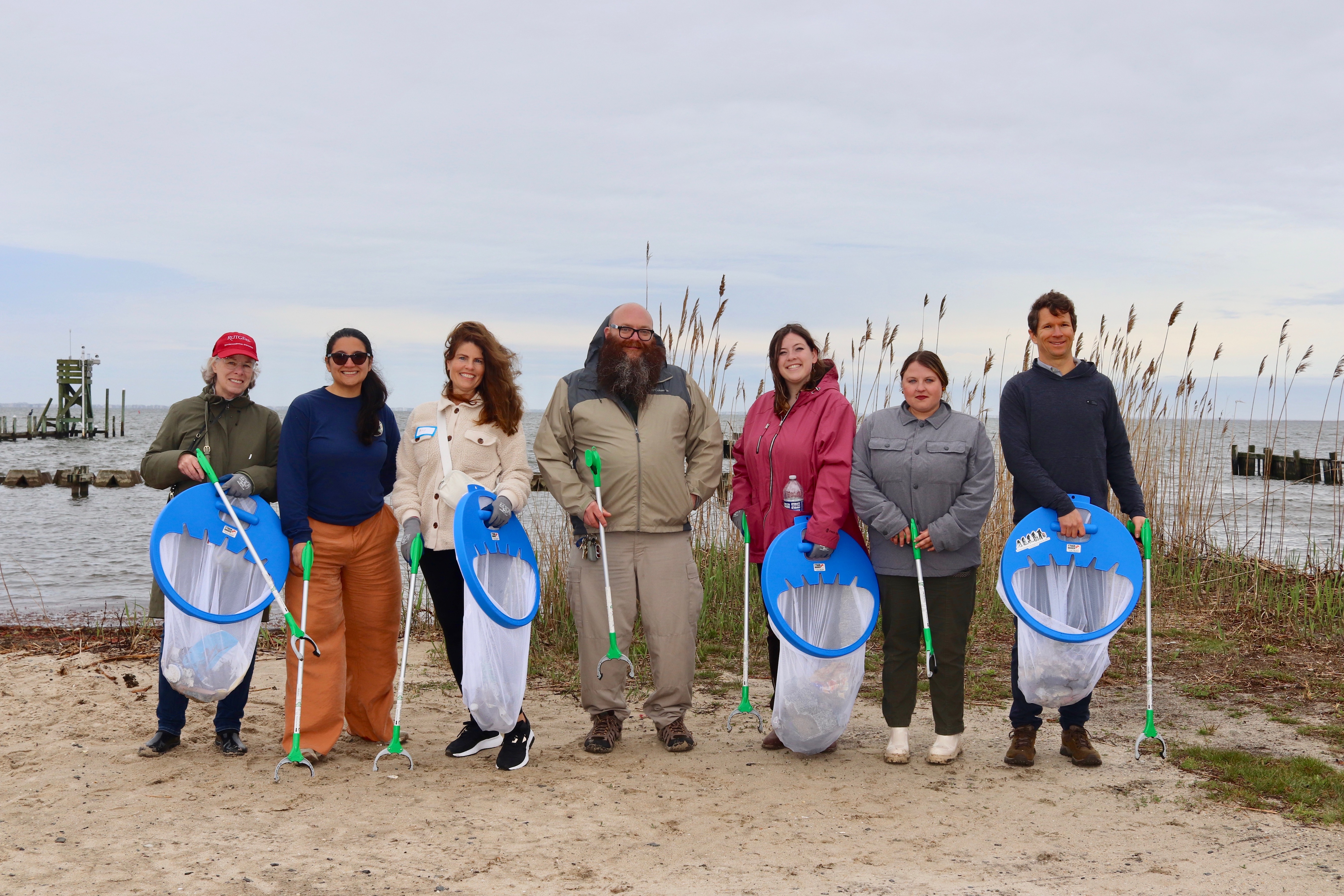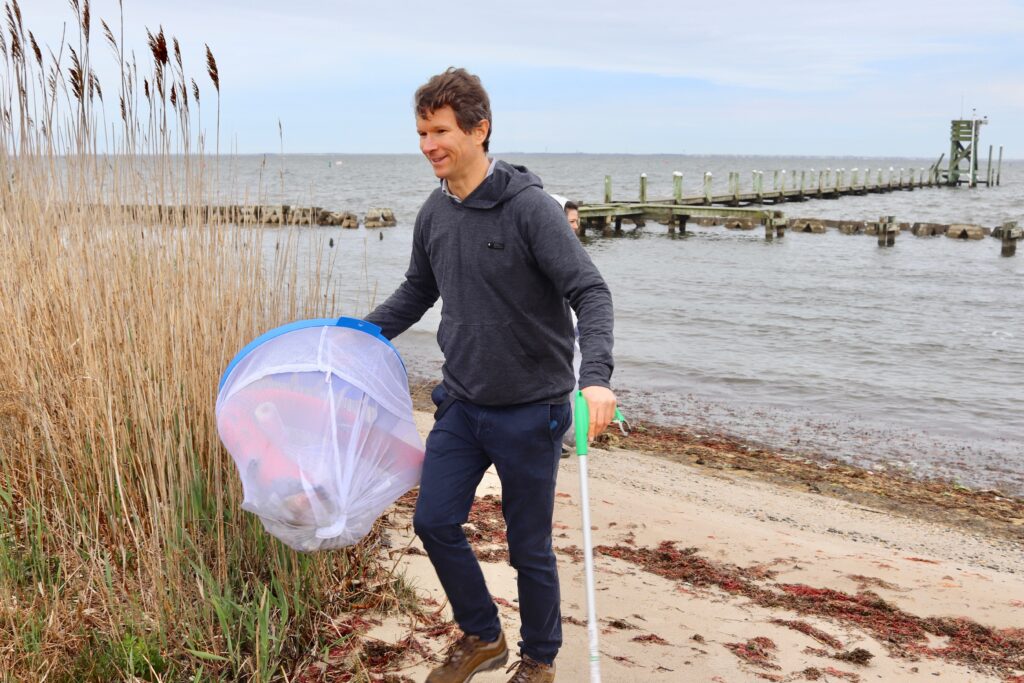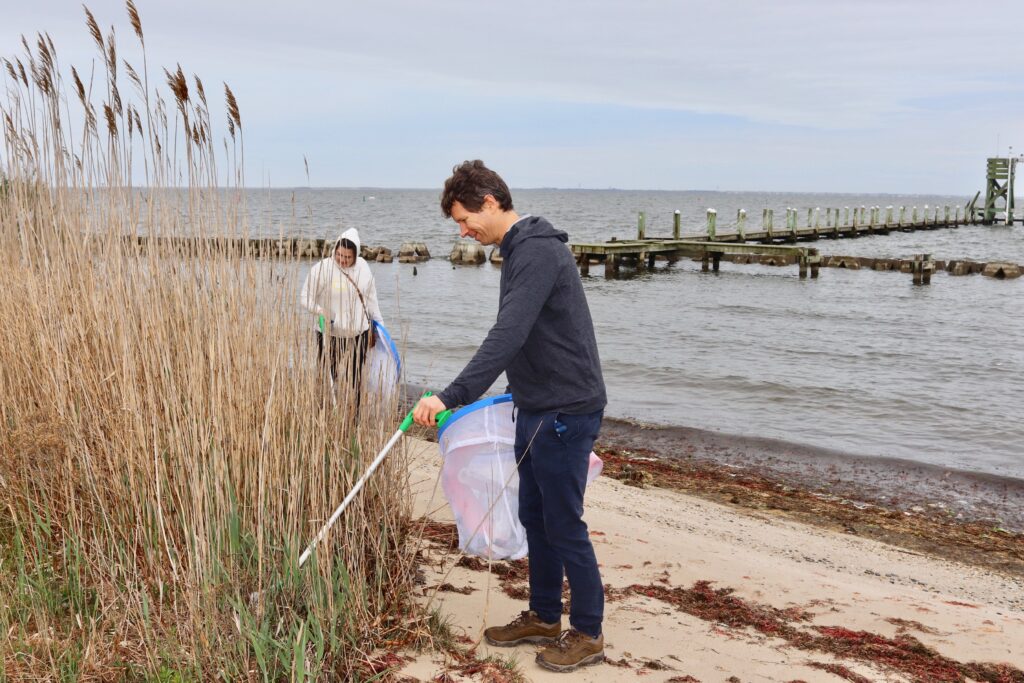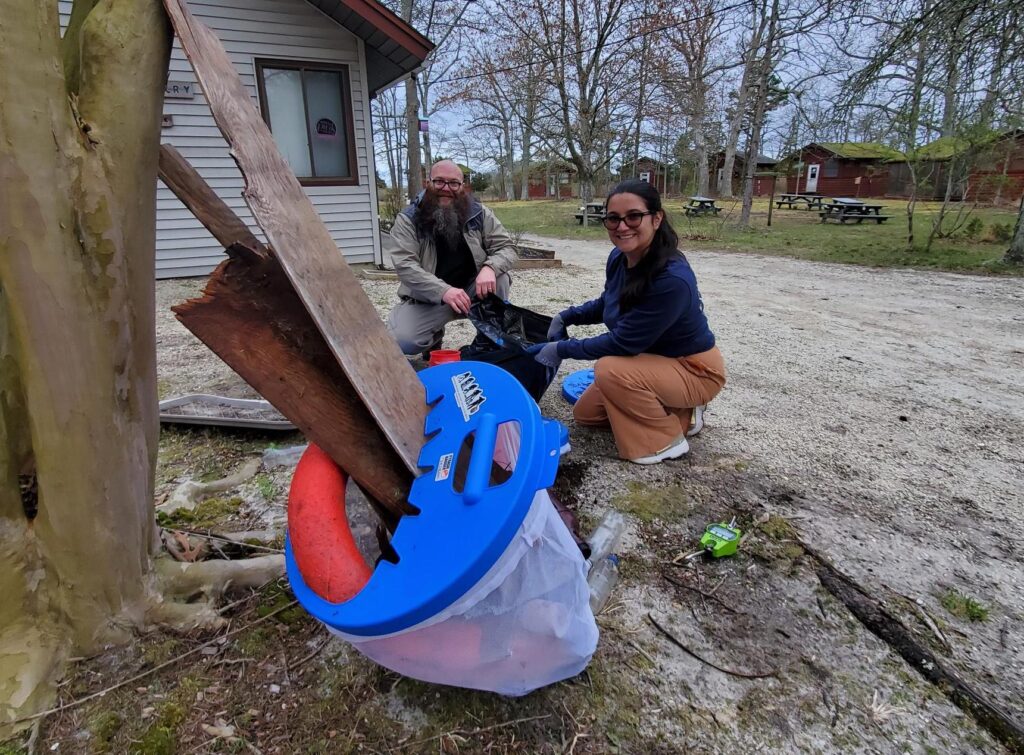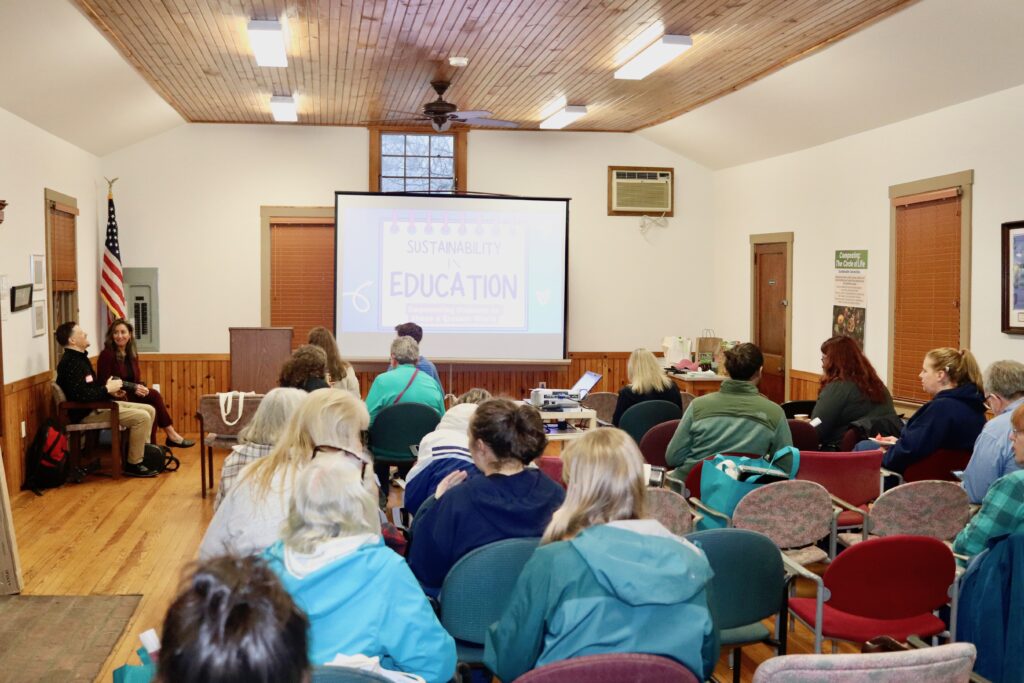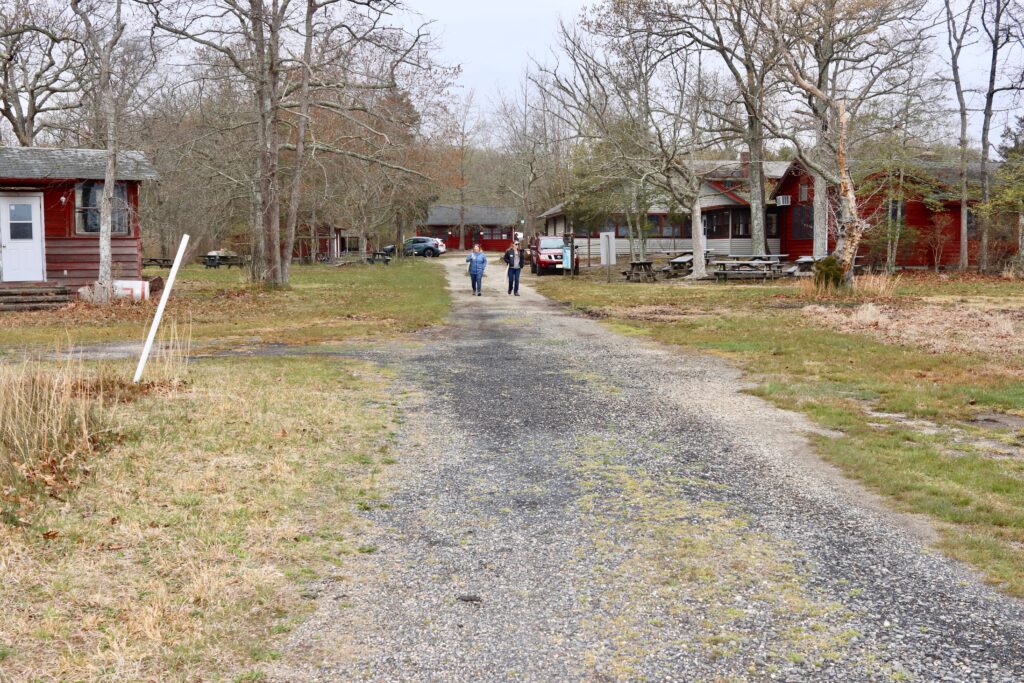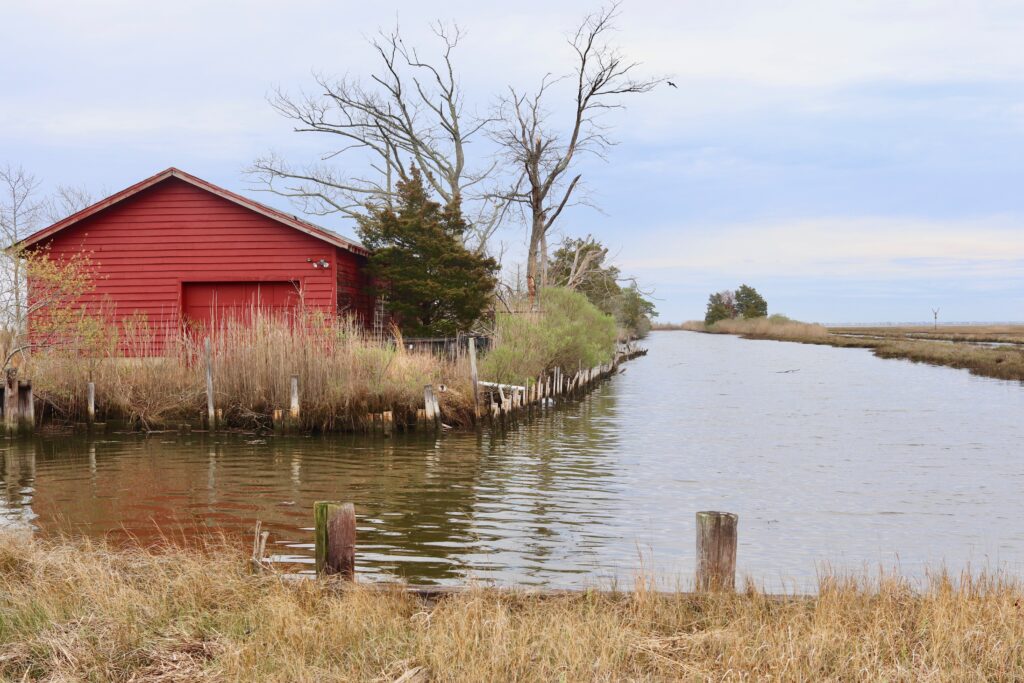“Sustainable Connections”
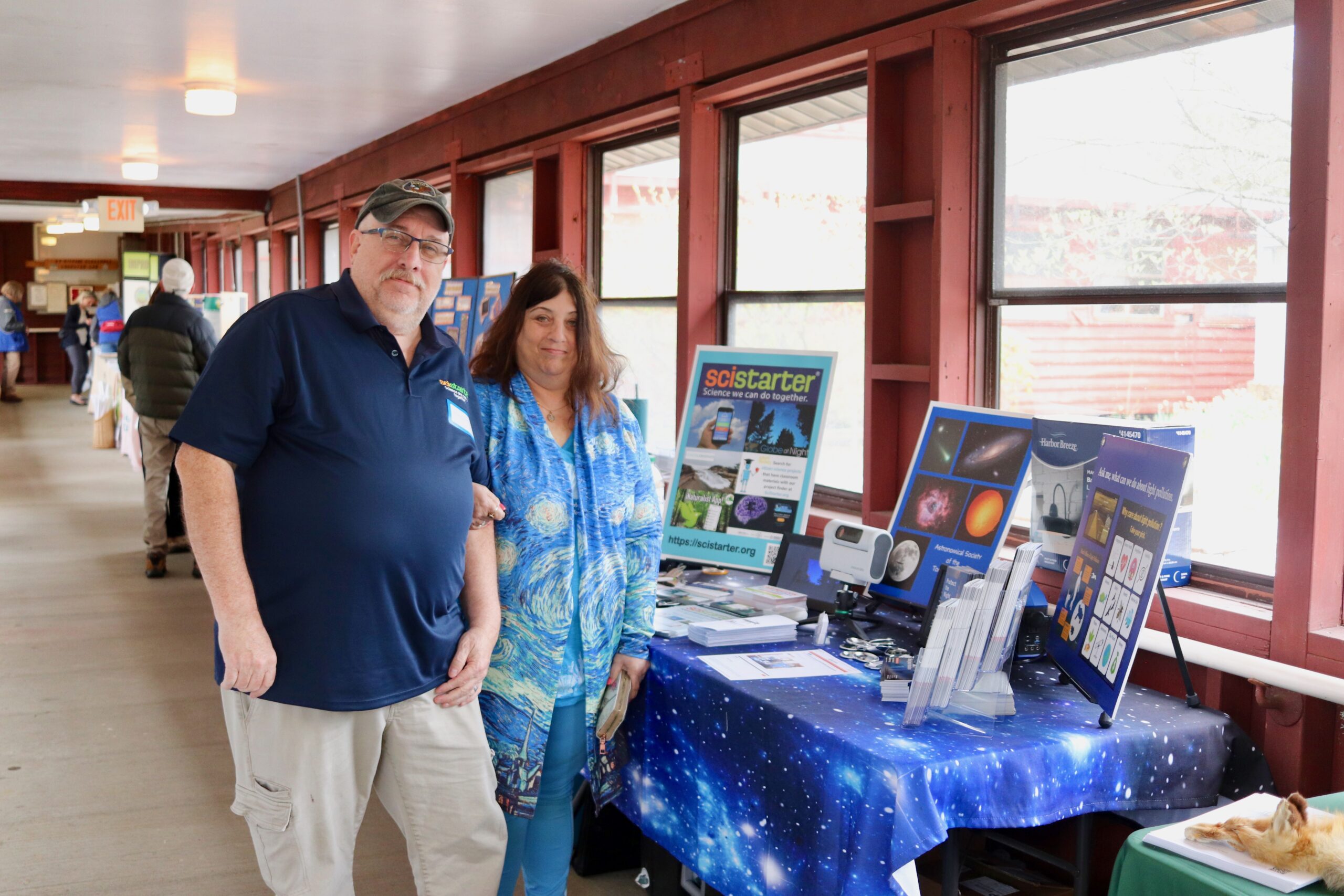
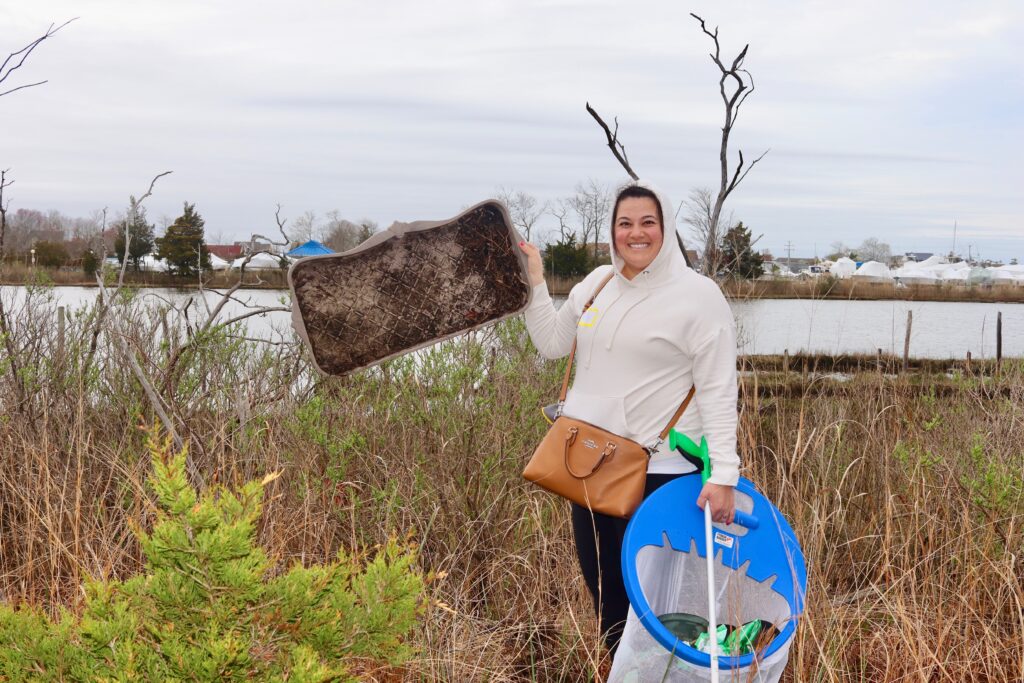
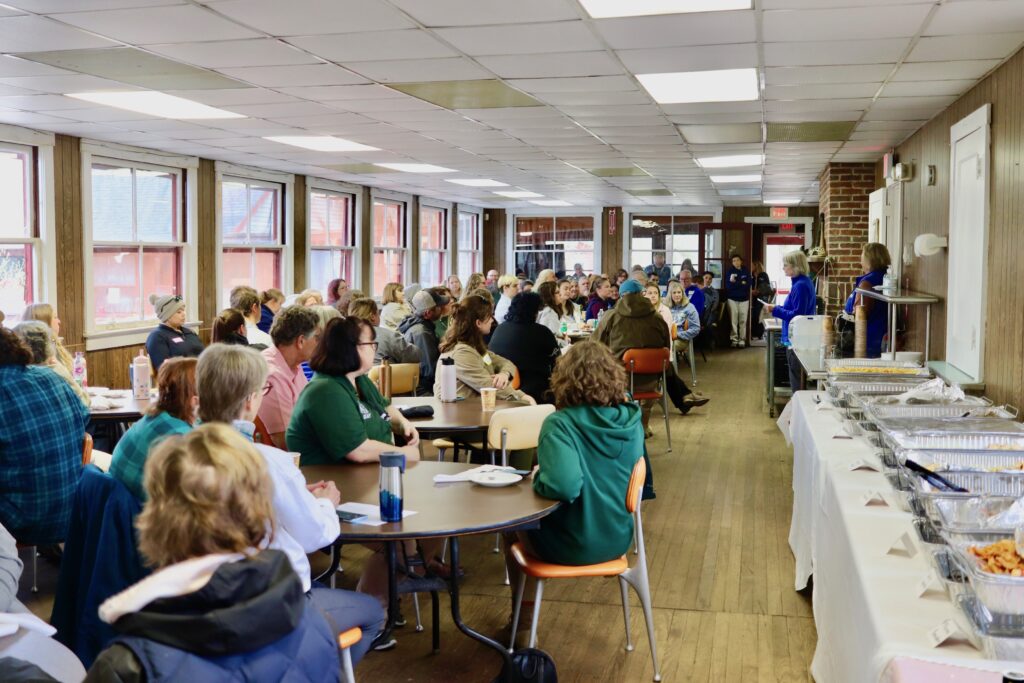
This year’s theme aims to spotlight the symbiotic relationship between the cultural, historical, and natural resources that define the unique and ecological significance of the Barnegat Bay watershed. By focusing on soils, compost, food waste, trash and marine debris we aspire to underscore the role of educators in fostering a deeper understanding of sustainability and environmental stewardship in the classroom.
Agenda:
3:00pm Open House: Dozens of local environmental organizations exhibited in the Lighthouse Center for Natural Resource Education, offering guests opportunity to peruse their tables, and speak to professionals about the educational resources and services they offer to teachers.
3:00-4:30pm Dinner: This year’s dinner was catered by Mulberry Street; it was sponsored by Ocean County Department of Solid Waste Management and funded by a Clean Communities grant. The menu included roast beef, stuffed flounder, pasta, roasted vegetables, roasted potatoes, hot sandwiches, and salad. Options for gluten-free, vegan and dairy-free were available. Teachers were able to enjoy a hot meal and catch-up with friends attending the Roundtable from all over the state!
4:00pm Welcome to the 27th Annual Barnegat Bay Environmental Educators Roundtable: OCSCD Board Vice Chairman John Tiedemann, District Director Christine Raabe, Natural Resource Education Foundation President Dr. Dane Ward and District Education & Outreach Coordinator Becky Laboy, welcomed educators to our annual signature event. NJ Honey Queen, Katie Culbert, shared information about her proposed native plant legislation moving through the New Jersey State Legislature.
4:30-5:30pm Workshops: Session One Workshops; 2-hour Field Trip to Double Trouble State Park left for offsite destination at 4:30pm.
5:40-6:40pm Workshops: Session Two Workshops; 2-hour Field Trip returned to the Lighthouse Center at 6:40pm.
6:45-7:00pm Dessert: Sweet snacks, goodies, coffee and tea were served in the Locandro Lodge.
7:00-7:45pm Keynote Presentation: “Sustainability in Education, Empowering Students to Build a Greener World”, presented by Shaina Brenner, 2022 Milken Educator Award recipient
7:45-8:00pm Door Prizes: Registered (paid) guests received a ticket at the door for a chance to win a Door Prize as our Thank You! for attending this year’s Barnegat Bay Environmental Educators Roundtable.
Keynote Presentation
Sustainability in Education, Empowering Students to Build a Greener World, by Shaina Brenner
This inspiring keynote address explored the vital intersection of sustainability and education. In this transformative session, Ms. Brenner delved into strategies to infuse environmental stewardship into every aspect of learning, inspiring students to become change agents in building a more sustainable world.
“Let’s pave the way for a greener future through education.” ~Shaina Brenner
- CANVA SLIDESHOW: Shaina Brenner Keynote Presentation with embedded links to resources
- VIDEO: Career Day at Elms Elementary School, 2023
- VIDEO: GREEN Career Day at Elms Elementary School, 2024

Shaina Brenner earned her B.S. in Communications from Rutgers University and is presently pursuing an M.A. in Educational Leadership from Montclair University. Since 2018, Shaina has taught second grade at Elms Elementary School in Jackson. Committed to sharing her passion for sustainability and environmentalism, she helps lead her school’s Student Green Team, as well as the Jackson School District Green Team. Shaina’s work is rooted in the belief that a great education is foundational to life success. She has been named Educator of the Year on two occasions and is the 2022 New Jersey recipient of the national Milken Educator Award.
Workshops
Session 1:
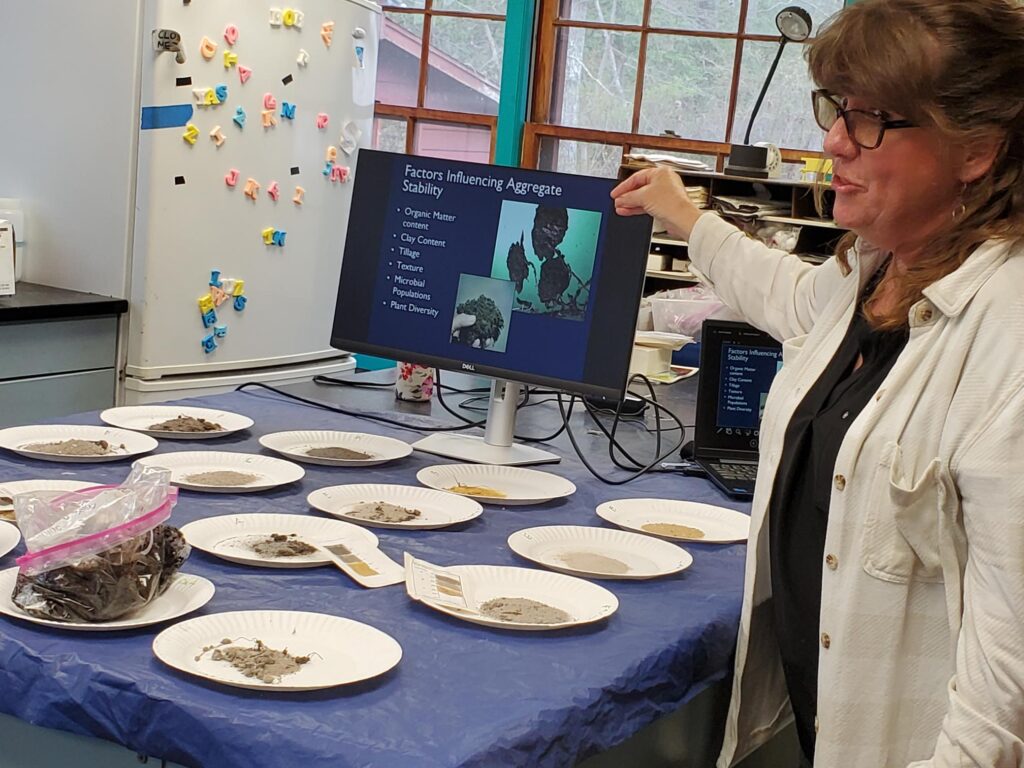
Soil – sustaining the future from the ground up, presented by Jessica Pinto, OCSCD and Eileen Miller, South Jersey Resource Conservation and Development Council
Don’t treat your soil like dirt! This workshop provided hands-on experiences that dug deep into the physical, chemical and biological properties of soil that make life on Earth possible. Participants engaged in activities that are easy to turn-key with your students in the classroom or on school grounds, that lay the foundation for a deeper understanding of the import role soil plays in growing food, ensuring clean water, cycling nutrients, and storing carbon.
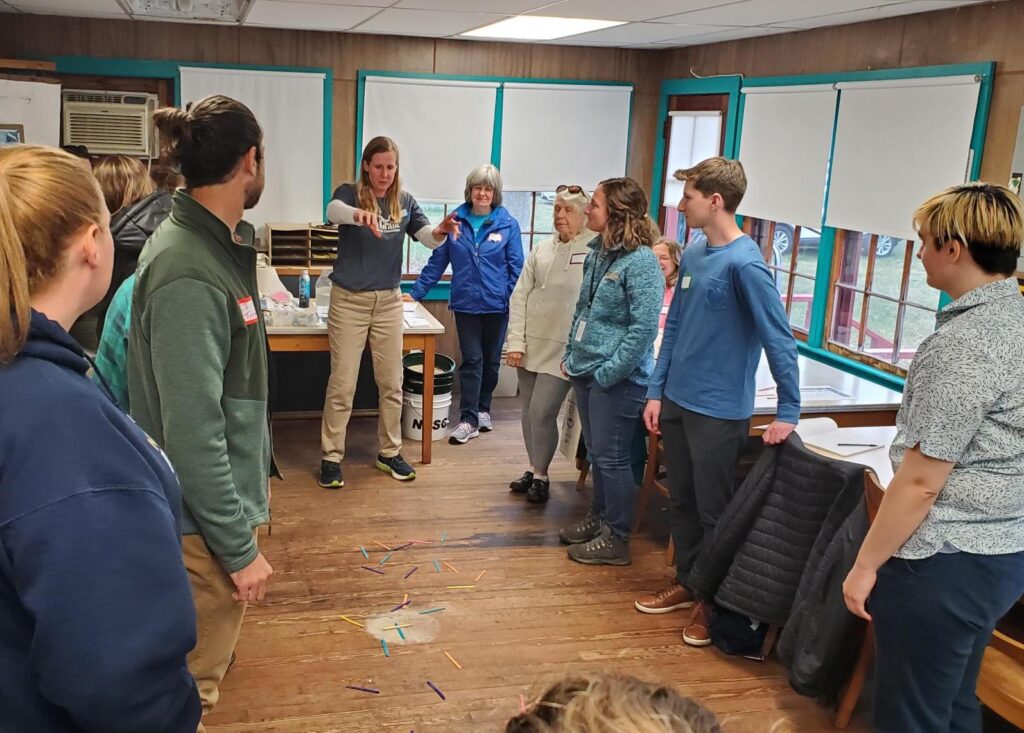
Navigating Microplastics, presented by Mindy Voss, Alaina Perdon and Rosemary Higgins, NJ Sea Grant Consortium
Plastics are everywhere! They are persistent and a major threat to our environment. Using hands-on activities, participants learned about the different types of plastics, how they act in a marine environment, and how they break down into microplastics. Several simple techniques to search for microplastics were demonstrated, and solutions to the plastic problem were discussed.
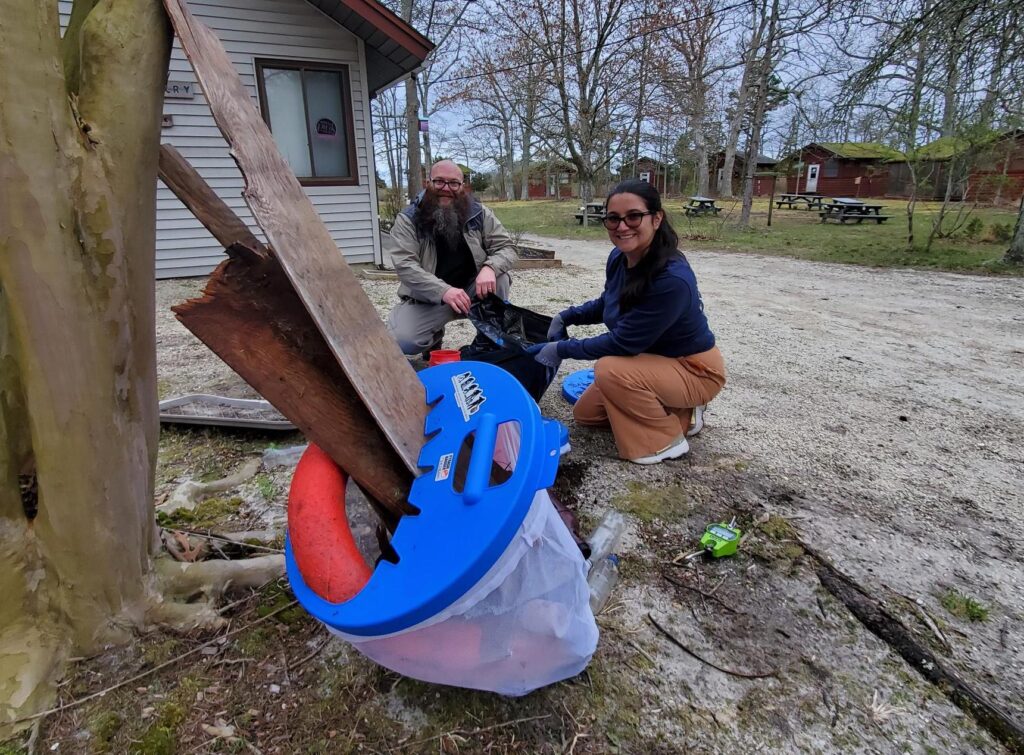
Trash in the Environment – clean-up and ecology walk, presented by Tanara Hall, Ocean County Department of Solid Waste Management and Chris Claus, Ocean County Parks & Recreation
Human litter is persistent in our environment. Participants engaged in a cleanup of the Barnegat Bay shoreline at the Lighthouse Center, cataloged the trash found, and made connections to a more sustainable approach to life. During the walk participants explored and learned about the ecology of the watershed, and discussed ideas for running a nature walk or cleanup on a school campus. Gloves and trash grabbers were provided.
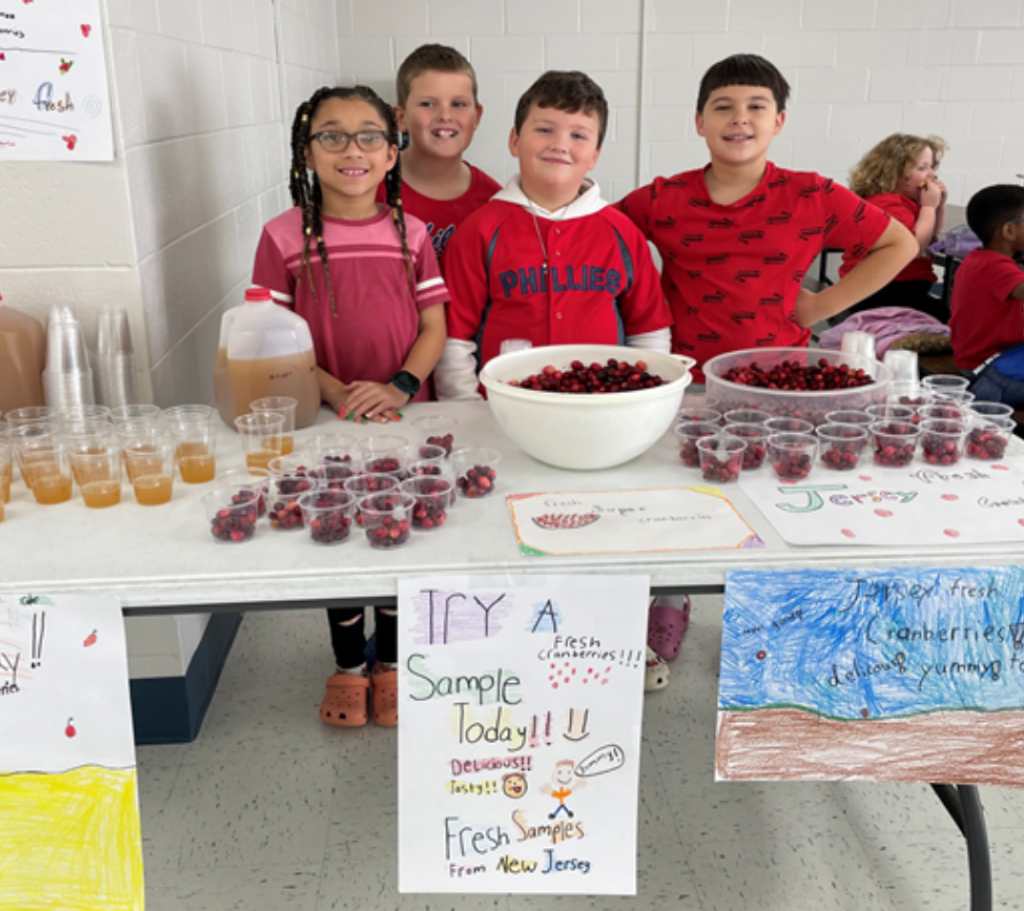
Farm to School, presented by Nicole Broadwater, Carmen Guzman-Francesco, and Alfred Wisniewski, New Jersey Department of Agriculture
With a goal to design a Farm to School program to implement in your school or community, workshop attendees created actionable Farm to School programming that reflected their school/community culture and resources. Emphasis was placed on the incorporation of NJ Climate Learning Standards in all focal areas of Farm to School such as taste tests, school gardening, and climate-conscious recipe building. Participants learned how teachers and students can gain access to healthy, local foods, as well as education opportunities such as school gardens, cooking lessons and farm field trips. Farm to school empowers children and their families to make informed food choices while strengthening the local economy and contributing to vibrant communities
Session 2:
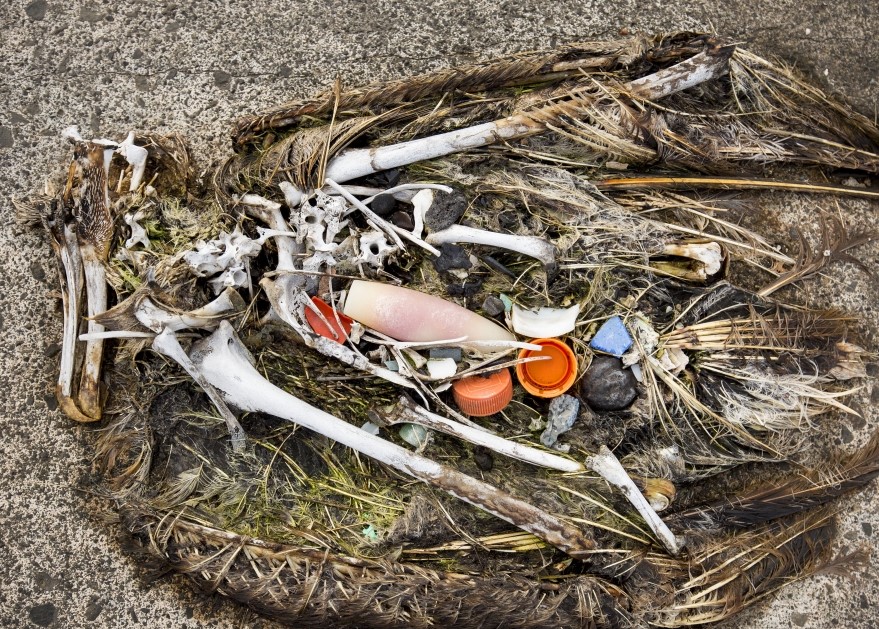
Effects of Marine Debris on Wildlife, presented by Kaitlin Gannon, Jacques Cousteau National Estuarine Research Reserve
Human trash in the environment can have devastating effects on wildlife. Participants reviewed some interactive lesson plans that focused on characteristics of animals and their susceptibility to various kinds of marine debris. Participants discussed how marine debris can impact humans, vessels, habitats and more. Locally relevant grant funded marine debris removal efforts here in NJ’s coastal bays were highlighted.
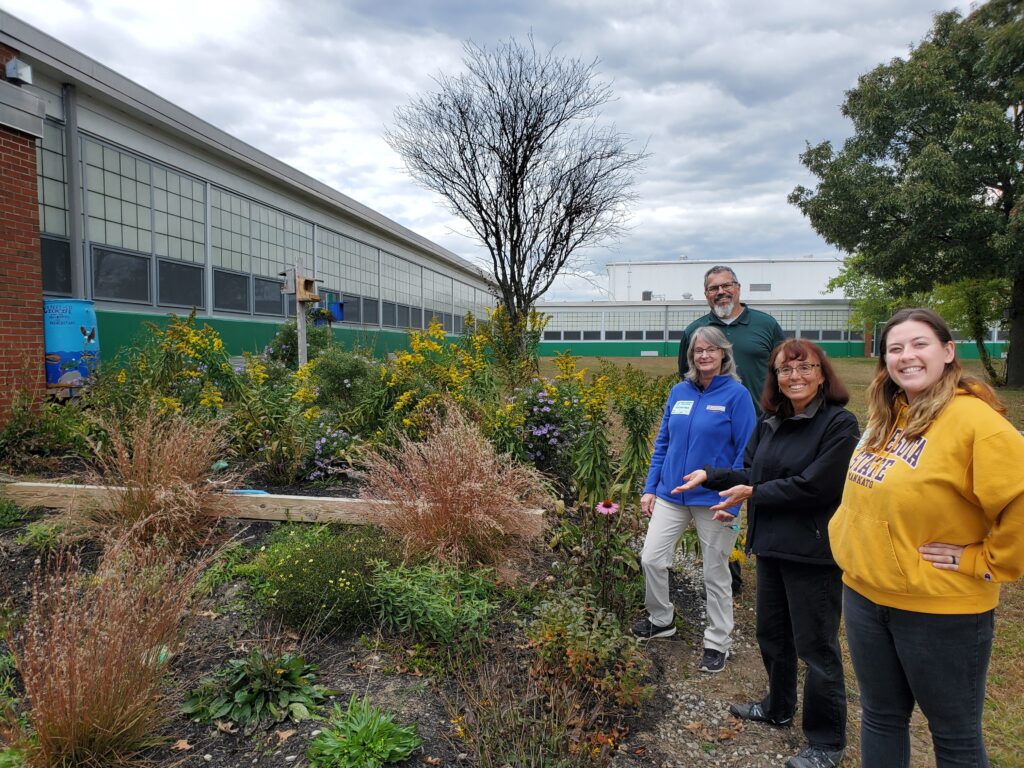
Jersey-Friendly Yards School Certification, presented by Bailey Sanders, Barnegat Bay Partnership
Schools are an important component of a healthy Barnegat Bay watershed. You can help to ensure clean water for drinking, swimming and fishing, healthy soil for gardening and growing, and essential habitat for wildlife by engaging students and the entire school community in planning, designing, and creating a Jersey-Friendly Schoolyard. Learn how to complete the Jersey-Friendly Yards School Certification Program for your school.
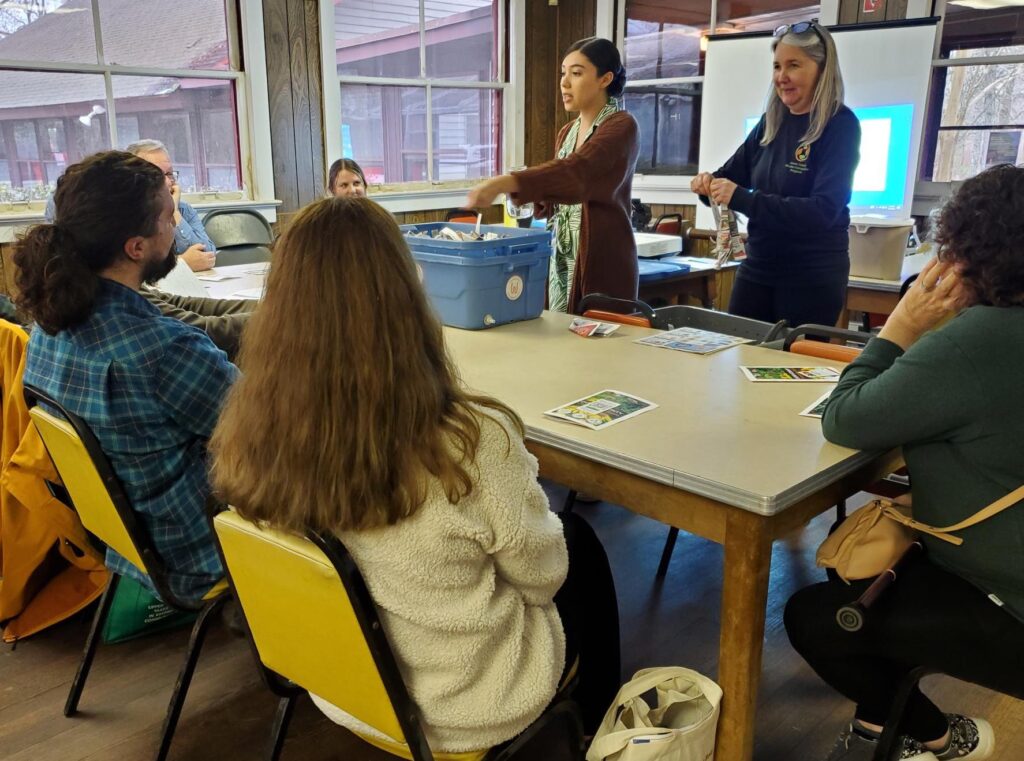
Composting in the Classroom, presented by Sandra Blaine-Snow and Margaret DeLeon-Rivera, Ocean County Department of Solid Waste Management
This immersive workshop provided ample opportunities to discover how to seamlessly introduce composting in your classroom, while meeting NJ Student Learning Standards. Participants engaged in hands-on experiences as they were guided through the construction of a classroom compost bin. They explored the science behind composting, and gained an understanding of its impact on waste management, carbon cycles, and nutrient dynamics. Practical insights on managing an odor-free classroom compost bin were discussed.
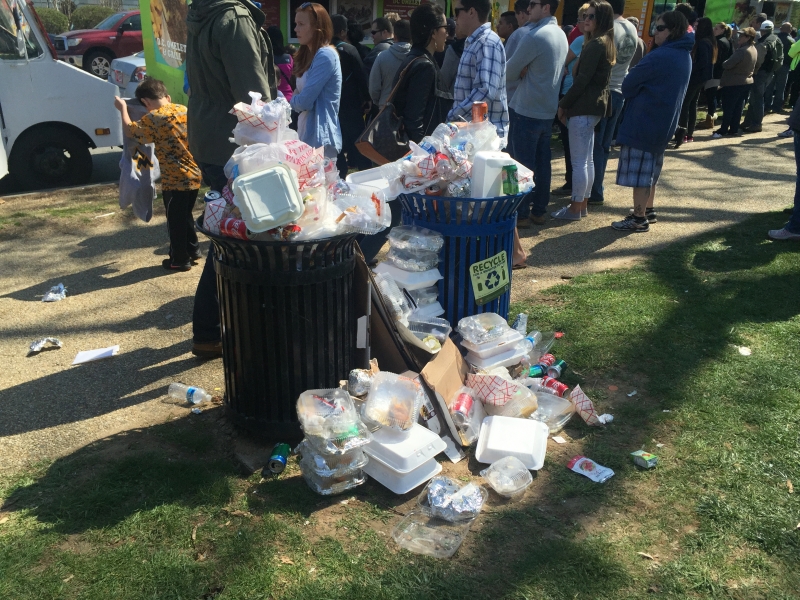
Plastics and Climate – how our consumption controls our survival, presented by Jennifer Lengares Meyer, Jenkinsons Aquarium
In this workshop, educators learned how plastic production, consumption, and disposal connect with our changing climate. Participants were introduced to strategies to communicate this issue to students, and empower them to create effective solutions. Resources and hands-on activities were provided for educators to create a climate of environmental stewardship in their classrooms or informal settings.
Field Trip to Double Trouble State Park
Cranberry Bogs and Lumber Mills – two sustainable industries that shaped Ocean County, presented by Andrew Anderson, Historian, Double Trouble State Park
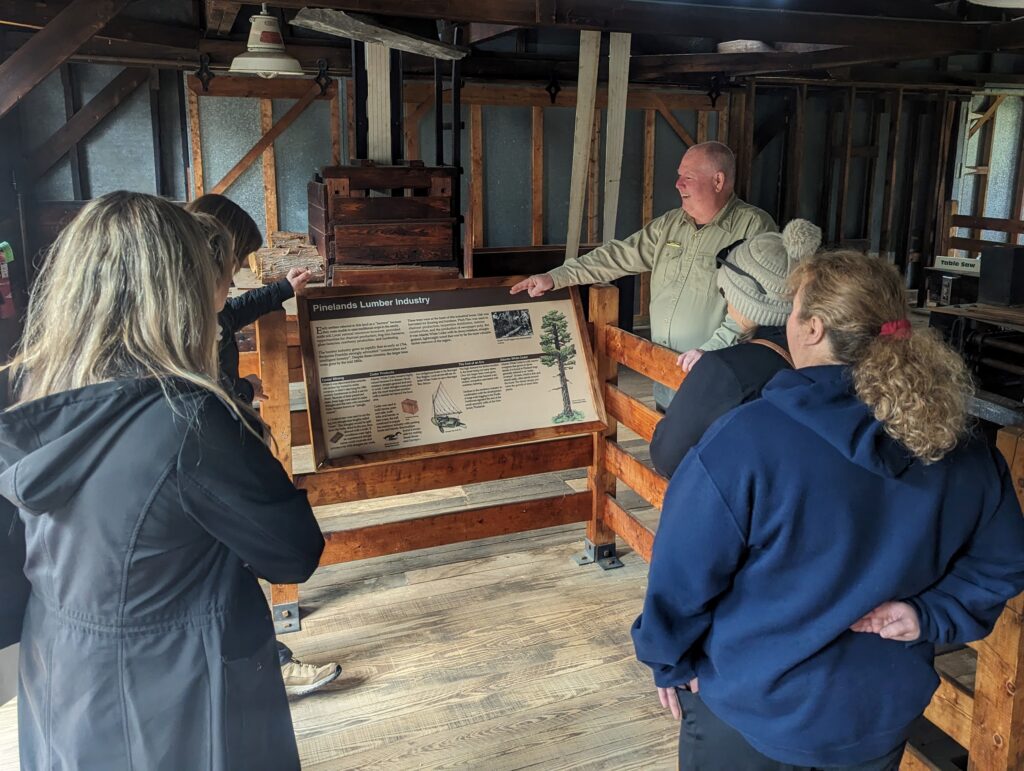
For over two centuries, the lumber mills and cranberry bogs at Double Trouble village in Bayville used sustainable harvesting techniques that literally built Ocean County! Some of the earliest houses in Toms River were built from Double Trouble lumber at a time when the county produced over a quarter of the nation’s cranberries. During this field trip to the state historic site at Double Trouble State Park, participants experienced firsthand the interaction of people and the environment over time.
Exhibitors:
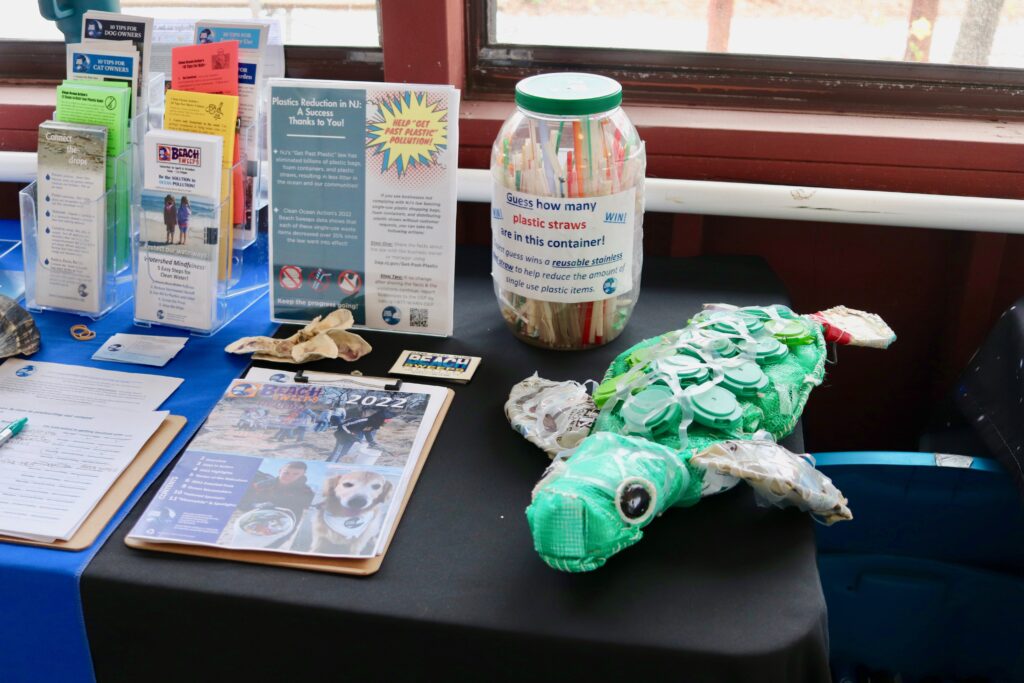
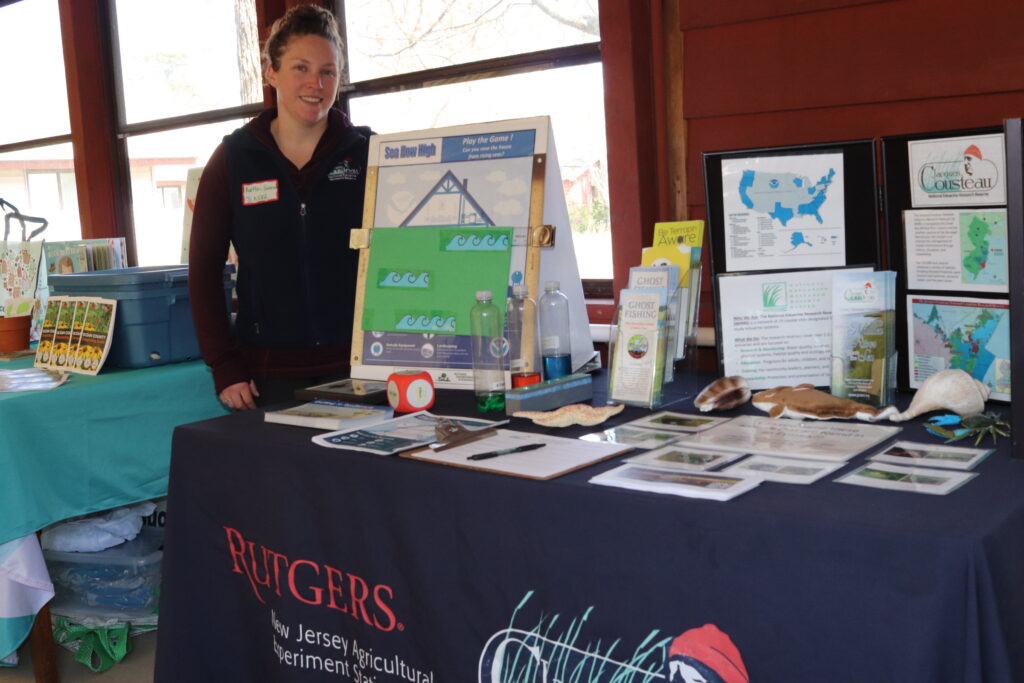
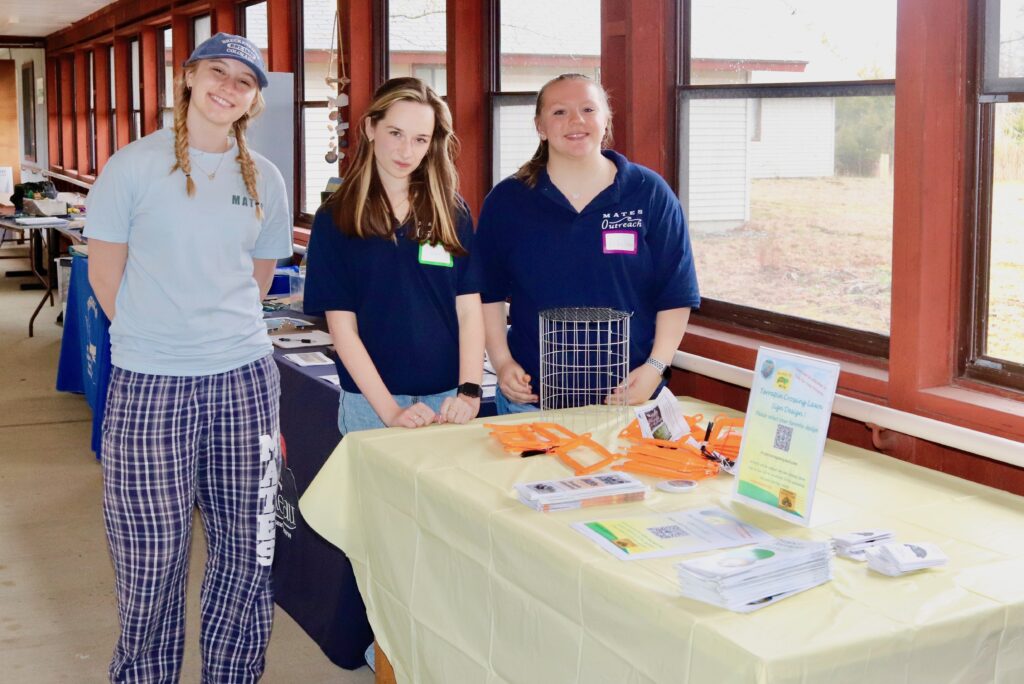
Enjoy Our Gallery of Photos!
27th Annual Barnegat Bay Environmental Educators Roundtable (2024)
